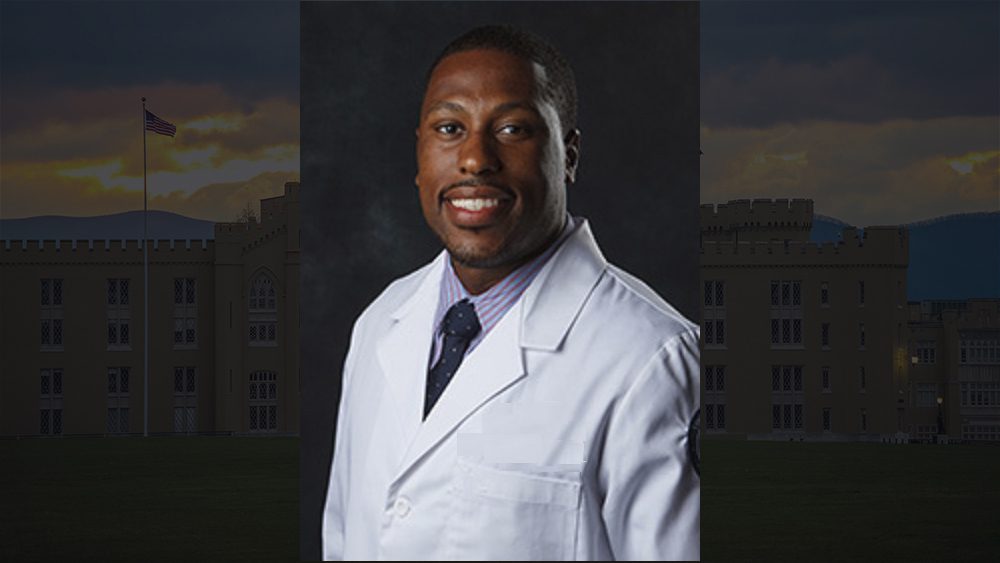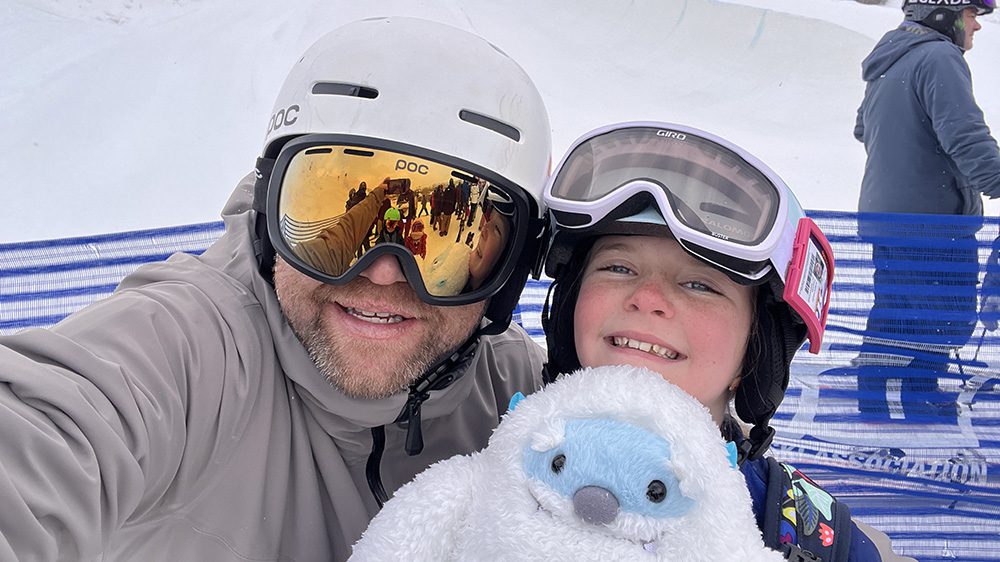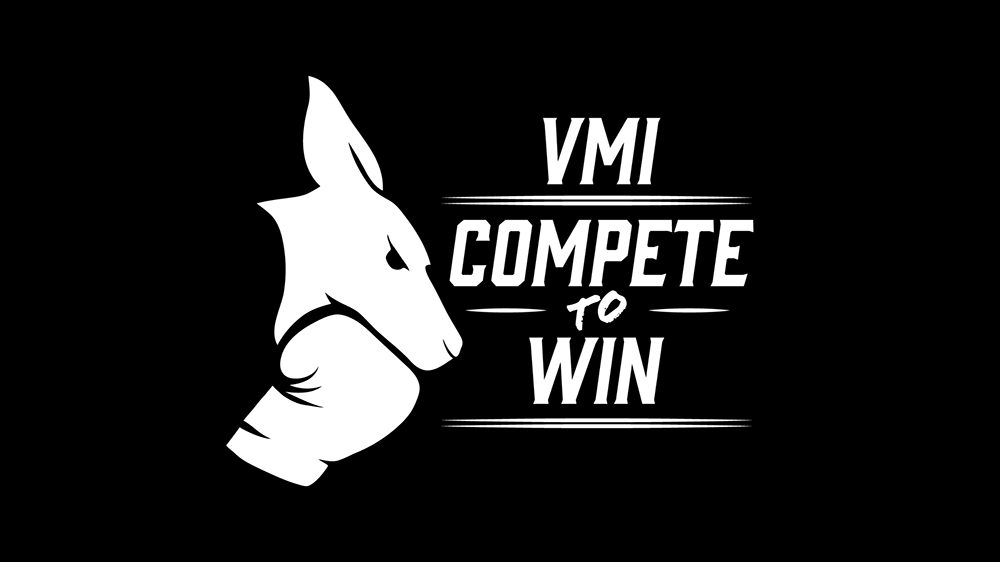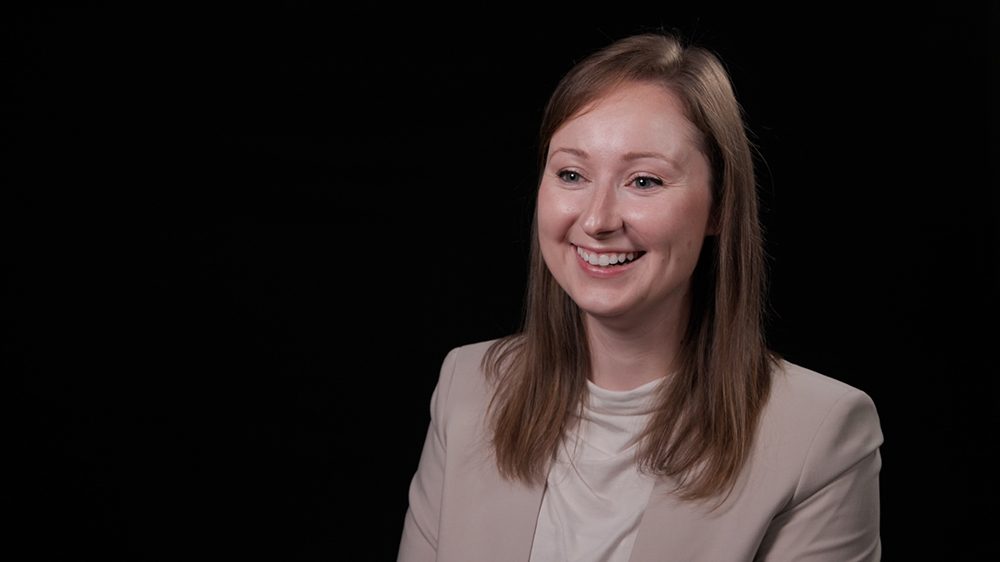Whenever you picture someone on the “front lines” of the fight against the COVID-19 pandemic, it’s probably someone like Arthur S. “A.J.” Gross Jr. ’11. A resident in family medicine at the Tower Health Group’s Reading Hospital in West Reading, Pennsylvania, Gross is working in the hospital’s emergency room, admitting and caring for patients. “It’s demanding at any time,” he said, “but during what we might call ‘corona times,’ it’s been exceptionally demanding for both the staff and the facility.” Gross and his colleagues work long hours – 16-hour days are not uncommon – wearing many layers of often uncomfortable personal protection equipment. The hospital’s intensive care unit is full, and the spillover of ICU patients has gone to other floors and wards. Multiple wings of the hospital are now dedicated to treating COVID-19 patients.
Gross took the first step to this moment in his life when, as a 12-year-old boy in Waldorf, Maryland, he decided on a medical career. He worked hard to attain it in high school, establishing himself as a talented student. The next step occurred because, along with being academically successful, Gross also was a successful football player – a linebacker to be precise. In 2007, Paul Soltis, then VMI’s inside linebacker coach, recruited Gross. Soltis was aided by the fact he was able to offer Gross a full scholarship, one funded by James H. Chapman III ’69 and his wife, Ruth.
Looking back, Gross said, “The Chapmans’ decision to establish that scholarship has had a profound effect on my life. I don’t know where I’d be without them.”
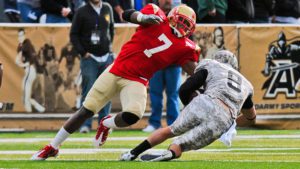
Arthur S. “A.J.” Gross ’11 came to VMI on a football scholarship, established by James H. Chapman III ’69 and his wife, Ruth. The scholarship has had a “profound effect” on his life, Gross said. A biology major who graduated with academic stars, he also earned numerous accolades as an athlete. After VMI, Gross earned a degree in osteopathic medicine and currently practices family medicine at Tower Health Group’s Reading Hospital in West Reading, Pennsylvania. Photo by the Sports Photo Guy, Chuck Steenburgh ’86.
Gross continued his success as a student and an athlete. A biology major, he posted a 4.0 GPA in his last three semesters, took part in summer research projects on microbiology and graduated wearing academic stars. His prowess as an inside linebacker earned him wide recognition. An All American and a Virginia All-State player, he was an all-Big South conference honoree for four years and, in his senior year, placed second in the voting for Big South Defensive Player of the Year.
After his graduation in December 2011, Gross didn’t pursue medical education immediately. Instead, he worked at the Armed Forces Radio-Biological Institute, located at the famous Walter Reed National Military Medical Center. There, he helped research and develop medications for use by U.S. military personnel.
Not long after, he enrolled at the Liberty University College of Osteopathic Medicine. It soon became evident that his VMI experiences prepared him well for the rigors of medical school. “VMI gave me the confidence to succeed. VMI demands that you strike a balance between all that is demanded of you – that old ‘three-legged stool’ – and that you perform at a high level across the board. Accomplishing that is no small feat, and it translates well in the real world.”
“VMI also makes you adept at responding to change. It pushes you to grow, to adapt often [and] rapidly. And, that’s good because life is dynamic and changes come at you fast.”
“It was funny,” said Gross, “to hear some of my classmates complain about the workload and pressures of medical school, saying things like, ‘Nothing could be worse than this.’ I remember thinking, ‘Getting up at 0600 and getting screamed at almost immediately is a lot worse than this.’”
Looking back, Gross said, “The Chapmans’ decision to establish that scholarship has had a profound effect on my life. I don’t know where I’d be without them.”
While at Liberty, Gross made another decision that helped bring him to where he is today: He decided to pursue family medicine. “The more I learned about it, the more it attracted me,” he recalls. “I like the fact that it’s a very diverse field; you have to know more about more subsets of knowledge. It also promised to let me keep more of my medical education at the front of my mind and the forefront of my practice.” Gross also liked the fact that he could apply family medicine to different environments – an office, urgent care, hospitals and emergency rooms. And that’s good because, as mentioned before, Gross’ work is concentrated in his hospital’s emergency room.
As he applies his knowledge and experience, Gross is mindful of the special challenges related to COVID-19. According to Gross, one is the nature of the disease itself. “There is no uniformity insofar as how it presents itself. First, we were told to look for fever, coughing and shortness of breath. Then, gastrointestinal distress was identified as a frequent symptom and, not long after that, a sudden loss of smell and taste.” Additionally, Gross said, there have been different changes to treatment recommendations, such as drug therapies.
All this really isn’t that surprising, according to him. “We’ve been coming to grips with this disease for a relatively short time. So, we learn new things about this disease, its prevention and its treatment almost every day. Of course, knowing this doesn’t change the fact that this situation can put medical professionals back on their heels a bit.”
Gross is also mindful of a secondary effect of the virus which is, as he puts it, “widespread unprecedented stress and anxiety.” Although people can become seriously ill with this disease and his hospital does have many serious cases, Gross points out that “we are not seeing a lot of fatalities.” The problem is, he observed, “that many in the news media have created a climate of fear about this disease. On top of that, the economic and social consequences of the restrictions put in place on people and businesses have heightened many people’s anxieties.”
Asked for any “lessons learned” that he could share with his fellow medical professionals, Gross responded, “It’s critical that we keep an open mind in regard [to] patients’ perspectives. As I said, we find out something new about this disease almost every day, and that causes serious concerns, if not downright anxiety. So, listen closely to your patients and don’t be dismissive of their concerns.”
He also stressed the need for “clear and concise communications” between medical professionals and patients – and among medical professionals. “This situation is often likened to a war, and, on any battlefield, maintaining strong communications is vital to victory. We need to speak with people in our facilities and outside of them, to people who share our specialties and those who don’t. It is not only informative, but it’s also somewhat therapeutic.”
Another important lesson Gross related was not to neglect self-care. “You need a respite from stress, both yours and others’. You need a mental and physical break to be as effective as possible. So, step away and allow yourself the opportunity to refuel and recharge.”
Gross also offered important advice to those not involved in health care. After seeing an increase in people admitted to the emergency room for drug overdoses and suicide attempts, he realized that this is a time for everyone to be conscientious about mental health. “So much has changed – our daily routines, the milestones by which we mark a year’s progress, our expectations – seemingly overnight. I urge everyone to be aware how you are processing those changes, to be more mindful of your emotions. Find ways to engage with your family, friends and neighbors as well as to take care of yourself mentally. If you invest in that type of self-care, you’ll be better able to deal with this crisis and move forward after it.”
Asked how he is feeling, Gross replied, “I’m optimistic. Yes, we have a challenge before us right now, but we have tackled challenges in the past – and I am confident in our ability to do so now. From the medical side of things, for instance, what I see is encouraging. In a broader context, I think we’ll grow from this and move forward. We just need to be patient.”
As for his own future, Gross plans to pursue what he calls “a late love of mine”: Emergency medicine. “The more I see it and experience it, the more I like it.” He plans to pursue a fellowship in emergency medicine, and then look for a hospital “below the Mason-Dixon line.” He admits that the field presents the prospect of a rapidly changing environment. But, he’s not too worried about that. “As I said, VMI teaches you to deal with change, to make the most of it. So, I’ll feel right at home.”
-
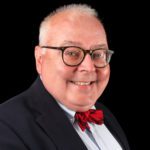
Scott Belliveau '83 Communications Officer - Executive Projects
The communications officer supports the strategy for all communications, including web content, public relations messages and collateral pieces in order to articulate and promote the mission of the VMI Alumni Agencies and promote philanthropy among varied constituencies.

